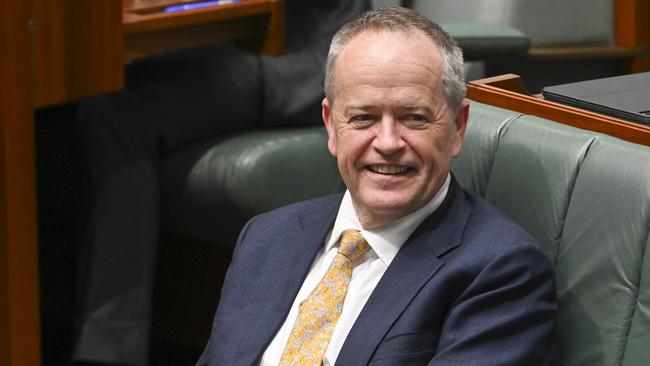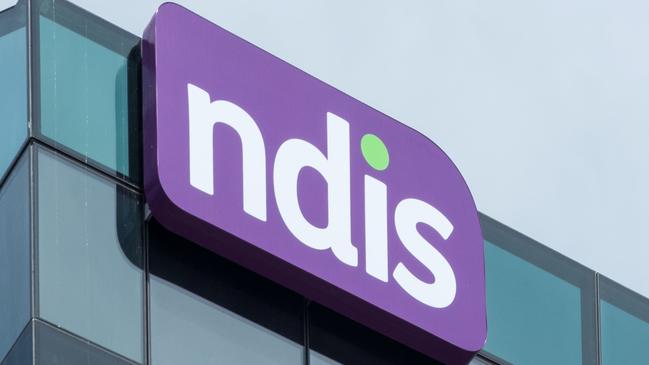Campbell: Uncapped NDIS is magic pudding that devours our taxes
Whether it is federal or state governments providing services like the NDIS, they still have to be paid for. Either way, the taxpayer pays, writes James Campbell.

Opinion
Don't miss out on the headlines from Opinion. Followed categories will be added to My News.
Last week, the investment bank Jarden dropped one of those research notes that do so much to ease the life of the hardworking financial journalists, revealing about 130,000 of the 437,000 or roughly 30 per cent of the jobs created in the year to February were in areas servicing the NDIS. Think about that. The NDIS is now responsible for almost one in three new jobs.
In the 1980s, as the service replaced the manufacturing economy, it was often said: “We can’t all make a living opening doors for each other.”
Today, Australia seems to be testing the limits of that.
The enormous scale of the problem of reining in the growth of the NDIS is shown by the modesty of the aspirations to which governments have agreed. At present, the growth in the cost of the scheme is rocketing along at 15 per cent a year, which is meant to slow to the much more stately pace of 8 per cent a year by 2026. And it cannot be emphasised enough that this is only an aim.
The scheme remains uncapped.

Recently you may have seen there has been argy-bargy between the NDIS Minister Bill Shorten and the states over his determination to try to find a way to keep so many children off the scheme.
(Remembering that at the moment one in 10 boys aged between five and seven arrive at school with a lunch box, a hat and an NDIS plan.)

Shorten wants the states to step up and start providing better services to children with the milder forms of autism and developmental delay, so there’s no need for them to end up on the NDIS.
As you can imagine, this has led to an inordinate amount of squealing from the states, all of which used the arrival of the NDIS to exit services they were previously providing.
Finding ways to shift costs to the commonwealth has been a core competency for state bureaucrats since time immemorial and so it is good to see the Feds trying to fight back. But, if you think about it for a second, it isn’t immediately clear taxpayers actually have a dog in this fight. By that I mean: What does it matter to us which level of government is providing these services, they still have to be paid for.
If it can be shown that moving these services to the state level saves us money, then I’m sure we can all rejoice. But doesn’t that then raise questions about why this is so?
Shouldn’t the cost be the same whichever level of government is providing them?
To get back to the extraordinary growth in NDIS employment, the Jarden note also showed that, overall, 56 per cent of the total jobs created were in “public-sector-dominated” areas of the economy such as health, aged care and education.
In other words, government spending was responsible for more than half of all the new jobs created in the year to February.
In fact, it’s way more than half because you also need to count the jobs that were created through state and federal government infrastructure spending.
You might think, oh well, the public sector has always been a good way of maintaining full employment.
But when almost one in three new jobs is in the disability sector, with aged care not far behind, it’s pretty clear that one of the reasons the private sector is so weak is precisely because that spending is soaking up resources that could be used elsewhere.
In other words, next time you read about a blowout in the cost of the NDIS, you shouldn’t just be angry about the cost to the budget, you need to remember it’s also a drain on the performance of the whole economy.
No doubt there will be people reading this who depend on the NDIS who will say I am a nasty person and we are a rich country that can well afford it. We are indeed a rich country and, for now, we can afford it. But for how long?





